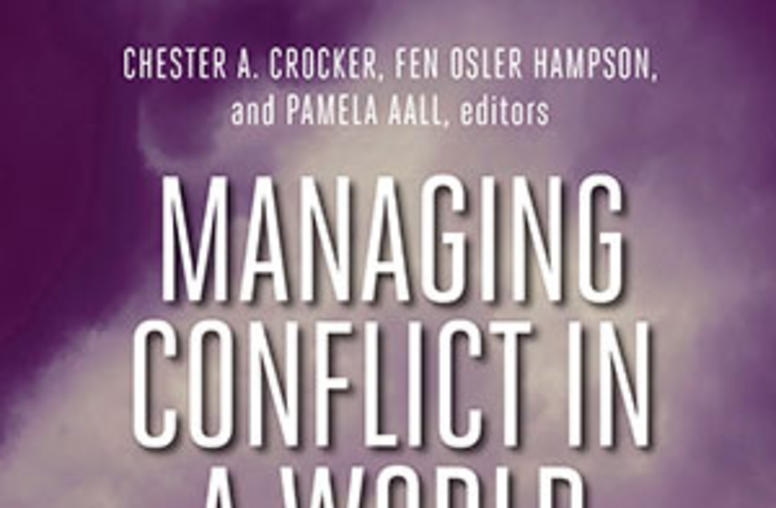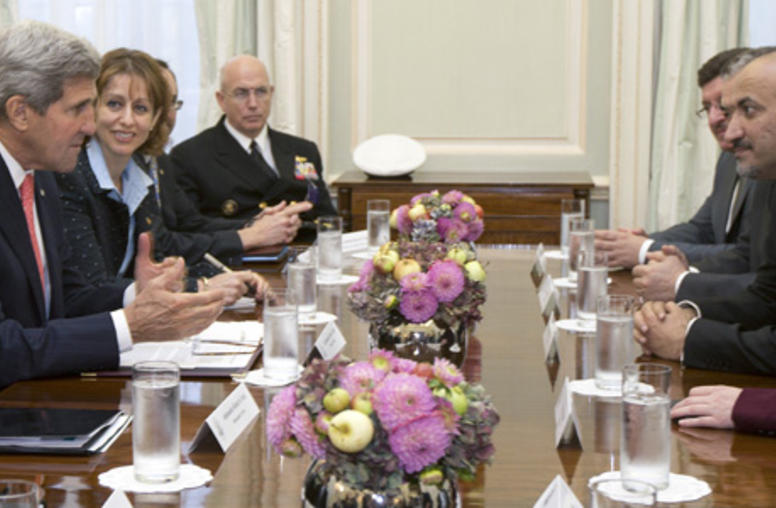Research & Analysis
U.S. Institute of Peace’s articles, reports, tools and other features provide policy analysis, research findings, and practitioner guides. These publications examine critical conflict issues at the center of the Institute’s work to prevent and resolve violent conflict.
The views expressed in these publications are those of the author(s).

Practicing Peace and Conflict Diplomacy in a Complex World
A combination of a weakening liberal international order, sharpening U.S.-China rivalry, growing transnational threats, shrinking space for civil society and rising nationalism and populism has complicated the practice of peace and conflict diplomacy. A new volume of essays examines approaches to such diplomacy in this complex environment.

Amid Peace Talks, Afghan Women’s Rights Hang in the Balance
Three Afghan women journalists and a medical doctor in the eastern city of Jalalabad were shot dead last week, part of a wave of killings—perpetrated by both ISIS and the Taliban—targeting rights activists, judges and journalists. The soaring violence in Afghanistan illustrates the stakes for Afghan women and civil society as the Afghan government and Taliban negotiate in Doha and the Biden administration considers its Afghanistan policy.

A Fire in the Garden: Can We End the Nagorno-Karabakh War?
Amid the world’s profusion of wars, COVID crisis and turbulent U.S. elections, a reader could overlook the century’s worst eruption of bloodshed between Armenia and Azerbaijan. But the revival this week of war in the Caucasus region should galvanize policymakers in Washington, Europe and Moscow to lean in hard and resurrect vigorous peacemaking for the first time in recent memory. While it’s unclear whether a full resolution can be achieved in any near future, this week’s fighting signals the risk of neglect: a dangerous, wider war.

In a World of Syria and Ukraine, How Can Conflict Managers Adapt?
Today’s global political realities of chaos and violent conflict are well-captured by the declaration, “The center cannot hold.” It’s the title of the first chapter in a new book, Managing Conflict in A World Adrift, that dissects the shifts in international security and the tense debates about how to adapt. The trends were the subject of a recent discussion at USIP that featured co-editors Chester A. Crocker and Pamela Aall and expert authors, including an award winning marine ecologist.

Episode 19 - Pamela Aall
This episode features Pamela Aall, senior advisor for conflict prevention and management at USIP, senior fellow at the Centre for International Governance Innovation (CIGI), and founding Provost of USIP’s Academy for International Conflict Management and Peacebuilding. In this episode she addresses a wide variety of topics related to cross-cultural and multiparty negotiation, including negotiating techniques, regional cooperation in conflict management, cross-cultural communication, and women’s involvement in conflict resolution.

Managing Conflict in a World Adrift
In the midst of a political shift where power is moving from central institutions to smaller, more distributed units in the international system, the approaches to and methodologies for peacemaking are changing. "Managing Conflict in a World Adrift" provides a sobering panorama of contemporary conflict, along with innovative thinking about how to respond now that new forces and dynamics are at play.

USIP, FP Group Launch Inaugural PeaceGame with Syria Focus
The U.S. Institute of Peace (USIP) and the FP Group jointly held their inaugural “PeaceGame” on December 9 at the Institute, an exercise that drew on a wide range of foreign policy specialists to examine what “the best possible peace for Syria” might look like.

Debate Lessons
What can we learn from other peace processes that could help ease the negotiations in Geneva this January between the Syrian government and the country's fractured opposition? Many seasoned practitioners would argue that since no two conflicts are alike, it is dangerous to assume that what worked in managing one conflict will work in another. At the risk of proving the skeptics right, however, there are a few areas in which earlier conflicts might provide useful lessons for Geneva: identity i...

Detention Standards and Non-State Armed Groups
All armed groups capture or detain individuals in a variety of situations, but it is unclear what legal obligations, if any, non-state groups have when dealing with detainees. Bruce Oswald explores this question and the challenge of getting non-state groups to respect basic detention standards.

New Report Indicates Consensus on Aspects of ‘Smart Power’
A new report by a nongovernmental coalition suggests that a “smart power” approach to international affairs is gaining traction and that there is bipartisan consensus on where to move forward. USIP, with its peacebuilding and conflict-management programs, is one form of smart power.